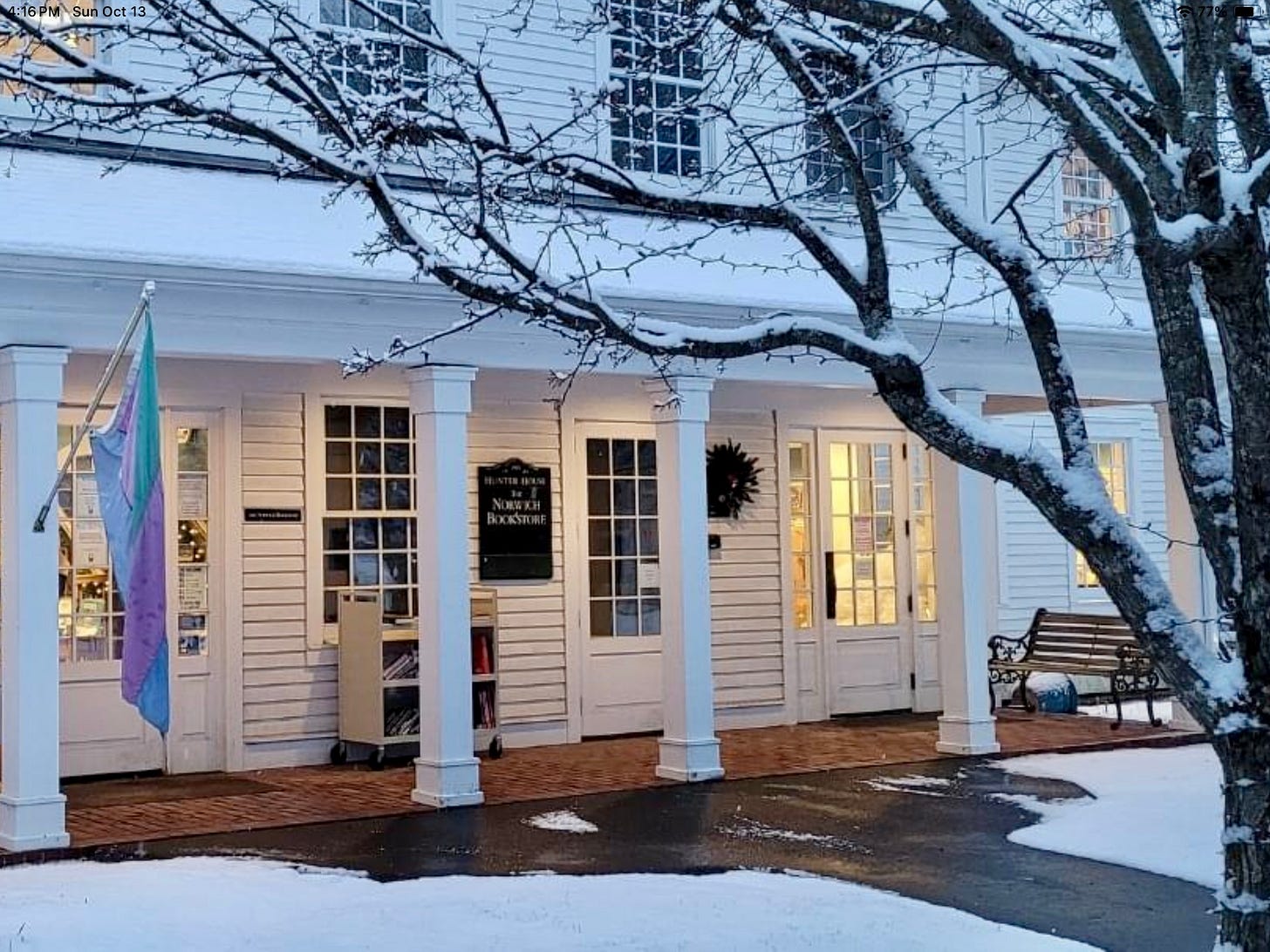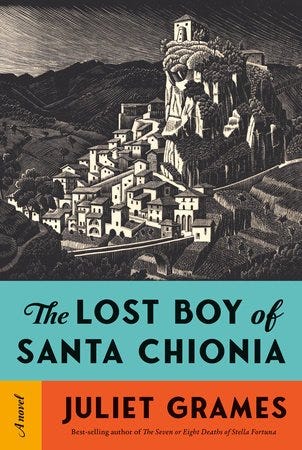A Flood, A Skeleton, Calabria: Author Juliet Grames at the Norwich Bookstore
Thursday, October 17

After decades of being a voracious reader, I find myself more and more searching for a book that simply tells a good story. And as a writer, my eye finds delight in rich, well-crafted prose—turns of phrase that I envy, description or dialogue that I stop and re-read just for the satisfaction of it. Juliet Grames’s The Lost Boy of Santa Chionia offers both the longed-for multi-faceted story and some smart prose. The author will be appearing at the Norwich Bookstore this week on October 17 at 7:00 p.m.
Grames sets her story in the 1960s. Her protagonist, twenty-seven year-old American Francesca Loftfield, has just arrived in Santa Chionia, a remote village in Calabria, Italy. She’s a do-gooder, working for an international children’s charity that wants to reduce child mortality and set up a nursery school in the area. Soon after her arrival, a flood sweeps through the village and unearths a human skeleton that had been buried beneath the town’s post office. The identity, and why his remains were there, begins the mystery. Even more curious is the fact that neither the local police, nor many of the villagers, are interested in finding out what happened. Of course, it falls to Francesca, now an amateur detective by necessity (one reviewer compared her to Miss Marple), to investigate, even as she tries to balance her sleuthing with her professional duties.
“ . . . the killer did not turn out to be who I thought it was when I started writing! Neither did the murder victim.” —author Juliet Grames, commenting for Writer’s Digest on her writing process for The Lost Boy and the limits of even “the most comprehensive outline.”
Grames’s writing transports the reader from the novel’s first paragraphs. Calabria, and the isolation of the village, rises from the page. We learn that Francesca has a room in her landlady’s house, and the shared space and resulting relationship is awkward, sometimes amusingly portrayed. (“But Cicca relished being offended by me and my large-footed, immodest Yankee ways, and I recognized it was within my power to bestow a small joy on her dingy, combative little life by letting her.”) Descriptions of waiting out the flood, stranded at home with Cicca, are atmospheric: the sounds, the damp, the lack of power, the pungent odors (“locked together in a fug of increasingly personal aromas”), the misery of it all. The only bridge to parts beyond has been washed away, leaving a jerry-rigged plank in its place, which undoubtedly wobbles.
But the book extends beyond who-done-it-to-whom and why. Francesca is beset by conflict and difficulties that are familiar even today, or especially today. She’s an outsider trying to find a way in (for starters, she is tall and Nordic, and she attempts, and often fails, to communicate in the local dialect, which to her dismay is actually some form of Greek); she’s an idealistic social justice warrior who wants to respect the local culture even as she is there to change it. The author states:
“Francesca’s central conflict is how to do the right thing in a world where everything is wrong and broken. It grew out of the systemic hopelessness and powerlessness I know I and others have felt in the last period of vitriol politics, medical crisis, and infrastructural instability. I hope the novel inspires readers to consider further the question of how to keep igniting compassion and trying to effect goodness in the world when a ruling system seems unopposable.” —Interview of author by Robert Lee Brewer in Writers’ Digest, 7/26/2024
Grames, now the Editorial Director at Soho Press, took seven years to write the book, locating her story in a part of Calabria not far from her own grandmother’s birthplace. She has said she was inspired to create Francesca Loftfield by a real-life memoir written by Ann Cornelisen, who had worked for Save the Children. In addition, Grames had conducted extensive research into the Italian diaspora, when young men left Italy seeking a life abroad and were sometimes never heard from again, a theme echoed in The Lost Boy, and according to Grames, in her own family history.
More information about the book and the event is available on the Norwich Bookstore website.
—————————————————
Thank you! You’re reading Artful, a blog about arts and culture in the Upper Valley, and I hope you’ll subscribe (still free) and then share this post with your friends and on your social media. We are now ever-approaching 3000 subscribers. Help push Artful over the top (we are so close!) by sending this post to a fiction-loving or arty friend.
And in case you are wondering . . . Susan B. Apel shuttered a lifelong career as a law professor to continue an interest (since kindergarten) in writing. Her freelance business, The Next Word, includes literary and feature writing; her work has appeared in a variety of lit mags and other publications including Art New England, The Woven Tale Press, The Arts Fuse, and Persimmon Tree. She connects with her neighbors through Artful, her blog about arts and culture in the Upper Valley. She’s in love with the written word.



